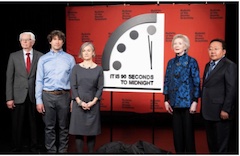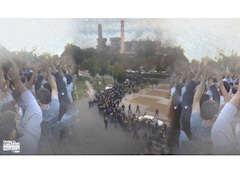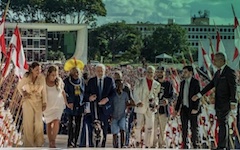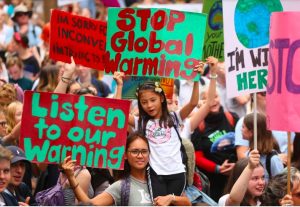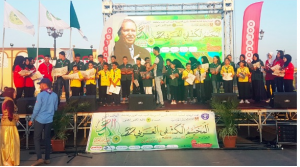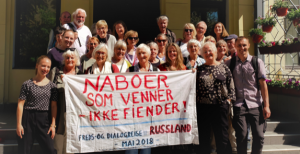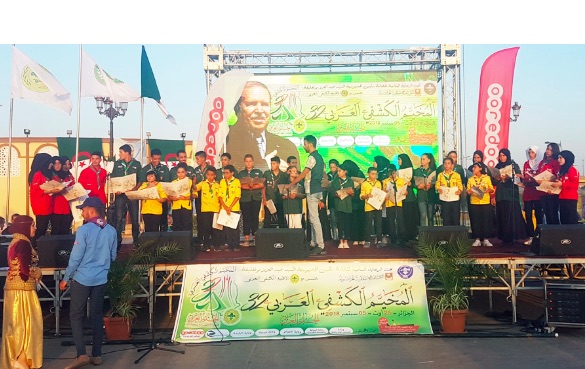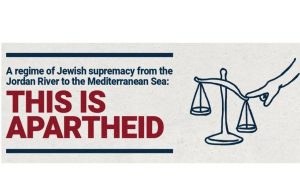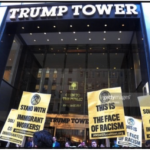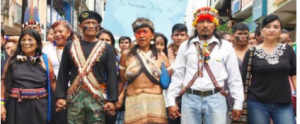While it is clear that today’s older generation is mired in the culture of war, there is still the hope that the new generation, today’s youth, can start the needed change.
For that reason, it is a sign of hope that this month’s bulletin finds initiatives around the world that support the work of youth for a culture of peace.
The oldest program is that of the of the United Nations Alliance of Civilizations (UNAOC). They have announced this year’s Young Peacebuilders Program for Latin America and the Caribbean that will support 20 youth “to build more inclusive and peaceful societies.”
The youth programs of the UNAOC have been carried out regularly since 2006 when they were launched on the basis of a study and proposal that was researched and written by members of the Culture of Peace Corporation which manages CPNN.
The largest program is being launched in Colombia where President Gustavo Petro has announced a program to support 100,000 young “peace managers” as part of his plans for ” total peace” in the country. The proposal is based on a program of 10,000 “peace managers” that was implemented by Petro when he was the mayor of the capital city of Bogota.
In Gabon, the Pan-African Youth Network for the Culture of Peace continues its work that has been followed for several years now by CPNN, involving youth in the political process.
In Sri Lanka, iDove Hybrid International Youth Conference involved 300 youth from Sri Lanka, Uganda, Philippines and Kenya to foster youth based interventions for inter-religious coexistence and harmony.
In Jamaica, Youth Inspiring Positive Change (YIPC) works to train, support youth as agents of change to break the ongoing cycle of violence in that country.
This year’s International Children’s Peace Prize has been awarded to Kawasaki Rena, a 17-year old from Japan in recognition of her work to involve youth in political change. In previous years, the prize has been attributed to Malala Yousafzai and Greta Thunberg, among others.
And finally, the Basel Peace Office has announced the nine finalists of the 2023 PACEY youth award which include:
* Global Perspectives on Corporate Climate Legal Tactics (United Kingdom)
* Peace in our Schools with young Ukrainian refugees and Russian immigrants (Georgia)
* SAFNA Youth Forum database on nuclear disarmament and arms control (Switzerland)
* Adopt a tree, not a weapon (Democratic Republic of Congo)
* Ertis Mektebi school for children with special needs (Kazakhstan)
* Testimonies of victims of uranium mining in Meghalaya (India)
* Silence the Guns project of Children for Peace (Cameroon)
* Storytelling for Peace, Love, and Climate Justice by MENA Youth Network (Middle East and North Africa)
* Youth Peace Caravans in refugee settlements (Sudan/Uganda)
What we wrote in the 2006 report is still pertinent: “there is a remarkable consistency among youth in all parts of the world in their dreams and hopes for a better world. From a village in Bangladesh to an island in the Caribbean or Pacific, youth yearn for the same opportunities to become educated and to educate others to achieve a culture of peace and solidarity”, and as one youth group demanded, “Please no more declarations and statements! Young people in the Pacific want real projects that have real outcomes!”
|
FREE FLOW OF INFORMATION |
Policy dialogue: PaynCoP Gabon for youth participation |
What is happening with solar energy? |
DISARMAMENT & SECURITY |
|
WOMEN’S EQUALITY |
EDUCATION FOR PEACE |
HUMAN RIGHTS |
Lula: “We will rebuild relations with all the countries of the world.” |



